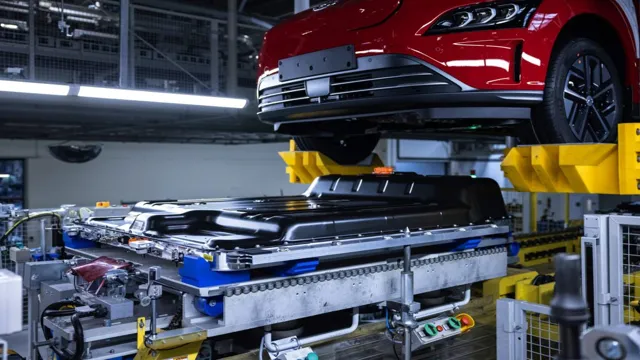When it comes to electric cars, one of the key metrics for performance is payload capacity. This determines how much weight the electric vehicle can handle, and is a major factor in the overall capabilities of the car. In this blog, we’ll explore the payload capacity of electric cars and the factors that impact it.
From battery size and motor power to weight distribution and load capacity, we’ll give you the information you need to make an informed decision when choosing an electric car.
Overview of Electric Car Payload Capacity
Electric cars have come a long way in the past few decades, and the payload capacity of these vehicles has grown as well. Electric cars are increasingly being used to carry heavy items, such as groceries, furniture, and other cargo. To understand the payload capacity of electric cars, it’s important to understand the concept of payload capacity and how it applies to electric cars.
Payload capacity is the amount of weight a vehicle can carry. It’s determined by the type of vehicle, the size of the vehicle, and the capacity of the vehicle’s powertrain. Electric cars can have a payload capacity ranging from 500 to 4000 pounds depending on the vehicle, and this capacity can be further increased with modifications.
The payload capacity of an electric car is determined by the battery, motor, and other components of the car. The battery capacity, motor power, and other components all play a role in how much weight the car can carry. The more power the motor has, the more weight the car can carry.
The battery size also plays a role in how much weight the car can carry since it determines how much energy the motor can draw from the battery. Electric cars with larger batteries and more powerful motors will generally have a higher payload capacity. However, it’s important to remember that payload capacity is affected by other factors, such as the weight of the car itself.
A heavier car will have a lower payload capacity than a lighter car. When it comes to payload capacity, electric cars can be an attractive option. They provide the same amount of cargo capacity as gasoline-powered cars, but they use less energy and emit fewer emissions.
Additionally, electric cars are often more affordable than their gas-powered counterparts. With the right modifications, electric cars can provide a great way to move goods and other cargo.
Also Learn: Understanding the Towing Capacity of Electric Cars
Battery Capacity & Weight
An electric car’s payload capacity is an important factor to consider when choosing the right vehicle for your needs. It is the maximum amount of weight that the car can safely carry, including the driver, passengers, cargo, and any accessories. This capacity is affected by factors such as the car’s battery size, weight, and design.
Knowing the payload capacity of an electric car can help you decide whether it is suitable for your needs, as it will determine how much you can carry and how far you can go.

Powertrain Capacity & Weight
When it comes to electric cars, one of the most important considerations is the payload capacity – how much weight can the vehicle carry. This is an important factor to consider when selecting an electric car, as it can affect the overall performance and range of the vehicle. Generally speaking, electric cars tend to have a lower payload capacity than their gasoline-powered counterparts, ranging from around 500 to 1,000 pounds.
However, some electric vehicles have payload capacities that can exceed 2,000 pounds. Ultimately, the payload capacity of an electric car will depend on the specific model and its battery size and type.
Vehicle Size & Weight
Electric cars are becoming more and more popular, and many drivers are wondering what the payload capacity of an electric car is. The payload capacity of an electric car will vary depending on the make, model, and size of the car. Generally, the payload capacity of an electric car ranges from 300 to 500 kg (661 to 1,102 lbs).
This is slightly lower than the payload capacity of a conventional car, but electric cars are becoming more powerful and efficient, offering more payload capacity as technology continues to advance. To determine the exact payload capacity of an electric car, it is best to consult the manufacturer’s specifications or ask a professional.
Data-Backed Examples
In recent years, electric cars have become increasingly popular, and with their rise in popularity, so has the question of what their payload capacity is. Fortunately, we have the data to back up this inquiry and provide some answers. Payload capacity is the amount of weight that a vehicle is able to safely carry, including the weight of passengers, cargo, and any other items.
The payload capacity of an electric car will depend on the size of the vehicle, motor power, and battery size. For example, the Nissan Leaf has a payload capacity of between 363 and 441 pounds, depending on the model. The electric version of the Ford F-150 can carry up to 1,800 pounds when properly equipped.
On the other hand, many smaller electric cars, such as the Nissan Leaf, have a much lower payload capacity, ranging from 363 to 441 pounds. When considering the payload capacity of an electric car, it is important to remember that the vehicle’s battery size and motor power will have an impact on its overall capacity. The larger the battery and motor, the higher the payload capacity of the car.
Additionally, electric cars that use a dual-motor system can often carry more weight than those that use a single motor. In conclusion, payload capacity varies widely among electric cars. The size of the vehicle, motor power, and battery size all have an impact on the payload capacity of an electric car. Therefore, it is important to research the specifications of the car you are considering to determine its payload capacity.
Also Learn: The Secrets of Electric Car Weight:
Some Best Exploring Electric Cars:
Tesla Model 3
The Tesla Model 3 is an electric car that has revolutionized the auto industry. When it comes to payload capacity, the Model 3 is no slouch. With a maximum payload capacity of 500 lbs, it can handle most cargo needs.
Given its all-electric powertrain, the Model 3 is also a great choice for those who are looking for a vehicle with eco-friendly features. So if you’re looking for a car that has plenty of hauling capacity, the Tesla Model 3 is definitely worth considering.
Nissan Leaf
The Nissan Leaf is a popular electric car choice, and one of the most asked questions about the vehicle is “what is the payload capacity?”. The answer to this question is that the payload capacity of the Leaf depends on the specific model and battery size, and can range from 95kg to 140kg. The Leaf is designed to provide a great balance between performance, efficiency and practicality, meaning it is well-suited to carrying light loads while still offering a comfortable and reliable ride.
With its versatile payload capacity, the Nissan Leaf is an excellent choice for people who need to transport items but don’t want to compromise on performance or efficiency.
Chevrolet Bolt EV
The Chevrolet Bolt EV is an electric car that has a payload capacity of up to 560 lbs. This makes it an ideal choice for those looking for a compact car option that can still handle a good amount of cargo. Whether you’re running errands, making a quick trip to the store, or heading out on a longer drive, the Bolt EV’s payload capacity is sure to meet your needs. With the Bolt EV, you can enjoy the convenience of an electric car without sacrificing on storage space.
Conclusion
With advancements in technology and infrastructure, electric cars are becoming a practical and efficient choice for businesses and individuals alike. By embracing this eco-friendly option, we can reduce our carbon footprint and contribute to a greener future. So, why not unlock the power of electric cars and make a positive impact on the environment? Read our other blog posts to learn more about the benefits and possibilities of electric vehicles.
FAQs
What is the payload capacity of an electric car?
The payload capacity of an electric car typically ranges from 250 to 500 pounds.
What is the maximum range of an electric car?
The maximum range of an electric car depends on the model and battery capacity, but most electric cars have a range of between 100 and 300 miles.
How much does it cost to charge an electric car?
The cost to charge an electric car varies depending on the type of charger used, but it typically costs between $0.13 and $0.25 per kilowatt-hour of energy.
How long does it take to charge an electric car?
It usually takes between 4 and 8 hours to charge an electric car, depending on the type of charger used.
What type of fuel do electric cars use?
Electric cars use electricity as their fuel source, and do not require gasoline or diesel.

I am James Beaupre, the founder of batteryvehicleprice.com. With a deep-rooted passion for vehicle batteries, I have dedicated my career to exploring and understanding the intricacies of this crucial technology. My website aims to provide valuable insights and information on battery-powered vehicles, empowering individuals to make informed decisions.
